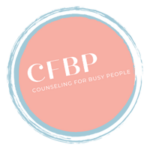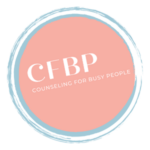The Power of Confident Body Language
Apart from pure physical attraction and animal magnetism there is no more attractive quality than confidence to initially draw someone to you or be drawn to others.
Your beliefs, convictions, core values, passions and dreams are extensions of your personal confidence. Your sense of humor, carriage and presence are bound up into and underpinned by your confidence.
Confidence is subjective. It can be subtle. It can be difficult to measure, master or teach.
You can lose it, even though you once possessed it in spades.
Confident body language, however, is more straightforward. It is a crucial element in maintaining and projecting your inner self-assurance and positivity, even if your mind might still be playing “catch up” with your body, in a very common and human game of “fake it till you make it.”
Use Your Body and Your Mind

“I’ve dreamt in my life dreams that have stayed with me ever after, and changed my ideas: they’ve gone through and through me, like wine through water, and altered the colour of my mind.”
– Emily Brontë
1. Enter a Room Like a Gala Event, Not a Church or Library
Really enter a room and walk through it like wine through water. You don’t have to work the room, just enter it with purpose and walk with slow, deliberate, undeterred grace, as though you have an important meeting or conversation waiting on the far side of the room or back doorway. Smile and make eye contact with people as you pass.
Lightly touching arms, shoulders, backs of those you may know on the way is optional, but also effective.
This is not about creating a charade. It is about projecting and creating an impression that helps you stand apart from those standing around unanimated, still or disengaged.
2. Stand in the Good Light
There is always the best place to stand, the place in the room where the light is most flattering. Be cognizant of that. Make your way there and look disinterested or interested, as you like.
However, when the moment comes to engage, engage fully. Be curious, interested with those that truly interest you, and know that standing there in the part of the room you’ve laid claim to, you’ve done all you could to be comfortable, welcoming and well lit.
Ernest Hemingway wrote a short story entitled “A Clean, Well-Lighted Place.”
It’s two central themes were that a “clean, well-lighted place” – in this case a small bar – provided an illusion of company, unlike their own homes, where they feel their loneliness more acutely.
The other theme was that it is an individual’s responsibility to himself/herself to find a clean, well-lighted place or create one of their own. The ironic paradox of the story is that meaning can be created only through an awareness of its absence.
We are aware of light and certain people only in their absence. Try to always be one of those people.
3. Carry a Great Prop
Carry a prop of some sort that allows you to keep your hands occupied – as opposed to unconscious fidgeting or faffing about with your hair.
This used to be accomplished with cigarettes, lighters and drinks. Now it’s often replaced by mobile phones or oversized clutches. Bring something much more interesting or striking, something worthy of attention or a potential conversation starter – for instance, a controversial, recent or eye-catching book, with which you’re actually familiar, is bound to give flight to an intelligent conversation.
4. Read the Room
In addition to being slow and deliberate, show that you know how to engage with people from all walks of life.
For instance, Annie Leibovitz skill and confidence gave rise to her inimitable status as one of the world’s preeminent portrait photographers. Her natural ability and cultivated approach to reading her subjects was legendary.
“She would make ordinary people feel like celebrities and celebrities feel more ordinary during her shoots and pre-shoot consults.”
5. Final Thoughts
There simply is no substitute for confidence. Do what you can to cultivate it utilizing positive body language, mental tools and situational awareness that help to project it.
This does not mean swagger or bravado. It means a breezy comfort and self-awareness as to how you may feel vs how you are perceived. Like all important life skills, you are either born with it or develop it through trial and error.
Look at it as the art of unveiling your best self over time, allowing your body language – like wine through water, to alter the colour of your mind, and you will do just fine.
Do you have other tips, pointers or examples of effective body language?
We would love to hear from you! Leave a reply below.

Lisa Ryan LPC
Learn something you don’t know yet.

